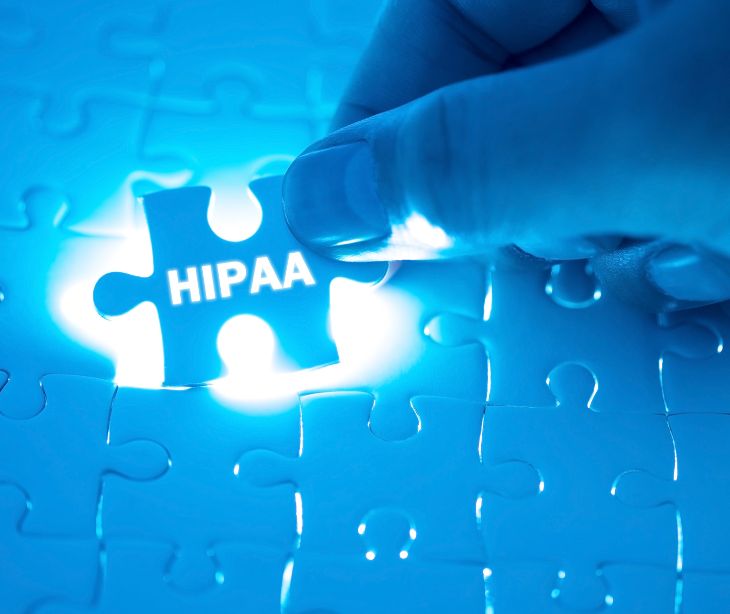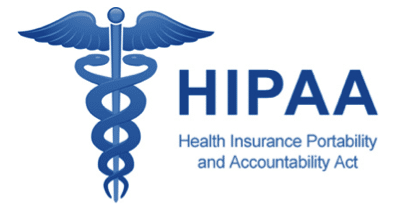
The common agency provision is a roadmap for covered entities and their business associates. It establishes the legal responsibilities and liabilities associated with HIPAA compliance.
Adhering to the common agency provision is a legal obligation and a testament to the trust and responsibility between patients and their healthcare providers.
What is the common agency provision?
The common agency provision is a rule defined in the Code of Federal Regulations (CFR). It outlines the legal responsibilities of a covered entity under HIPAA. A covered entity refers to any healthcare provider, health plan, or healthcare clearinghouse that transmits or maintains PHI. The provision establishes direct and indirect liability for covered entities and business associates.
See more:
Direct liability
A covered entity's responsibility is to make sure that anyone who handles PHI on their behalf complies with HIPAA regulations. This involves taking the necessary steps to safeguard PHI and establishing a Business Associate Agreement (BAA) with any third-party entity that deals with PHI on their behalf. Failing to do so can lead to severe legal consequences for the covered entity.
Liability by association
The common agency provision also highlights the importance of not turning a blind eye to a business associate's non-compliance with HIPAA standards. Suppose a covered entity is aware of a business associate's failure to adhere to HIPAA regulations and does not take appropriate action. In that case, they can be indirectly liable for any breaches or violations. This provision emphasizes the need for collaboration between covered entities and their business associates to protect PHI.
The origin of the common agency provision
At the core of the common agency provision is agency law, which governs the rights, relations, and conduct of the agency and principal in various legal relationships.
Agency law extends beyond HIPAA and applies to relationships such as employer-employee and buyer-seller. In healthcare compliance, agency law refers to the relationship and responsibilities between a covered entity and its business associates.
Implications of the common agency provision
The Office for Civil Rights (OCR), under the Department of Health and Human Services, serves as the regulatory watchdog for HIPAA compliance. The OCR enforces HIPAA rules and ensures that covered entities and their business associates adhere to the established standards.
Non-compliance with HIPAA regulations can result in severe sanctions. Therefore, covered entities and their business associates must remain vigilant and proactive in upholding these standards.
The role of business associate agreements
Signing a business associate agreement (BAA) is a necessary step for covered entities and their business associates. However, it is essential to note that simply signing a BAA does not absolve a covered entity from the responsibility of protecting PHI.
The BAA establishes the legal obligations and expectations between the covered entity and the business associate. Still, the joint effort and collaboration between the two parties ensure proper PHI protection.
The importance of PHI protection
Healthcare providers and their business associates are legally obligated to safeguard confidential healthcare information. Failure to do so can lead to legal consequences, loss of patient trust, and reputational damage.
Staying compliant
Healthcare organizations must prioritize compliance and data security as technology evolves. With the rise of electronic health records and digitization of patient records, the risk of privacy violations and data breaches grows. Organizations should implement strong security measures to protect patient information and stay up-to-date with HIPAA regulations.
The Section 45 CFR § 160.402 breakdown
General rule
Subject to § 160.410, the Secretary will impose a civil money penalty upon a covered entity or business associate if the Secretary determines that the covered entity or business associate has violated an administrative simplification provision.
Violation by more than one covered entity or business associate.
- Except as provided in paragraph (b)(2) of this section, if the Secretary determines that more than one covered entity or business associate was responsible for a violation, the Secretary will impose a civil money penalty against each such covered entity or business associate.
- A covered entity that is a member of an affiliated covered entity, in accordance with § 164.105(b) of this subchapter, is jointly and severally liable for a civil money penalty for a violation of part 164 of this subchapter based on an act or omission of the affiliated covered entity, unless it is established that another member of the affiliated covered entity was responsible for the violation.
Violation attributed to a covered entity or business associate.
- A covered entity is liable, in accordance with the Federal common law of agency, for a civil money penalty for a violation based on the act or omission of any agent of the covered entity, including a workforce member or business associate, acting within the scope of the agency.
- A business associate is liable, in accordance with the Federal common law of agency, for a civil money penalty for a violation based on the act or omission of any agent of the business associate, including a workforce member or subcontractor, acting within the scope of the agency.
FAQs
What is the common agency provision under HIPAA, and what does it cover?
The common agency provision, found in Section 45 CFR § 160.402, addresses the legal responsibilities of covered entities under HIPAA. It outlines how liability can be both direct and indirect, meaning covered entities can be held accountable for the actions of their business associates in relation to the handling of protected health information (PHI).
How does the common agency provision impact liability for HIPAA violations?
The provision establishes that covered entities are responsible for ensuring their business associates comply with HIPAA regulations. If a business associate violates HIPAA rules, the covered entity may be held indirectly liable.
What are the responsibilities of a covered entity under Section 45 CFR § 160.402?
Covered entities are responsible for ensuring that their business associates follow HIPAA regulations. This includes entering into business associate agreements (BAAs), monitoring compliance, and taking corrective actions if any violations occur.
Can a covered entity be held liable for the actions of a business associate under this provision?
Yes, under the common agency provision, a covered entity can be held indirectly liable for the actions of a business associate if those actions result in HIPAA violations. This liability reinforces the necessity for thorough due diligence and regular oversight of business associates.
What steps should a covered entity take to comply with the common agency provision?
To comply with the common agency provision, covered entities should ensure all business associates sign a business associate agreement, regularly review and audit business associate activities, provide necessary HIPAA training, and address any compliance issues promptly to minimize liability risks.
Subscribe to Paubox Weekly
Every Friday we bring you the most important news from Paubox. Our aim is to make you smarter, faster.




